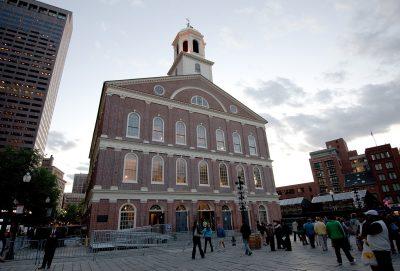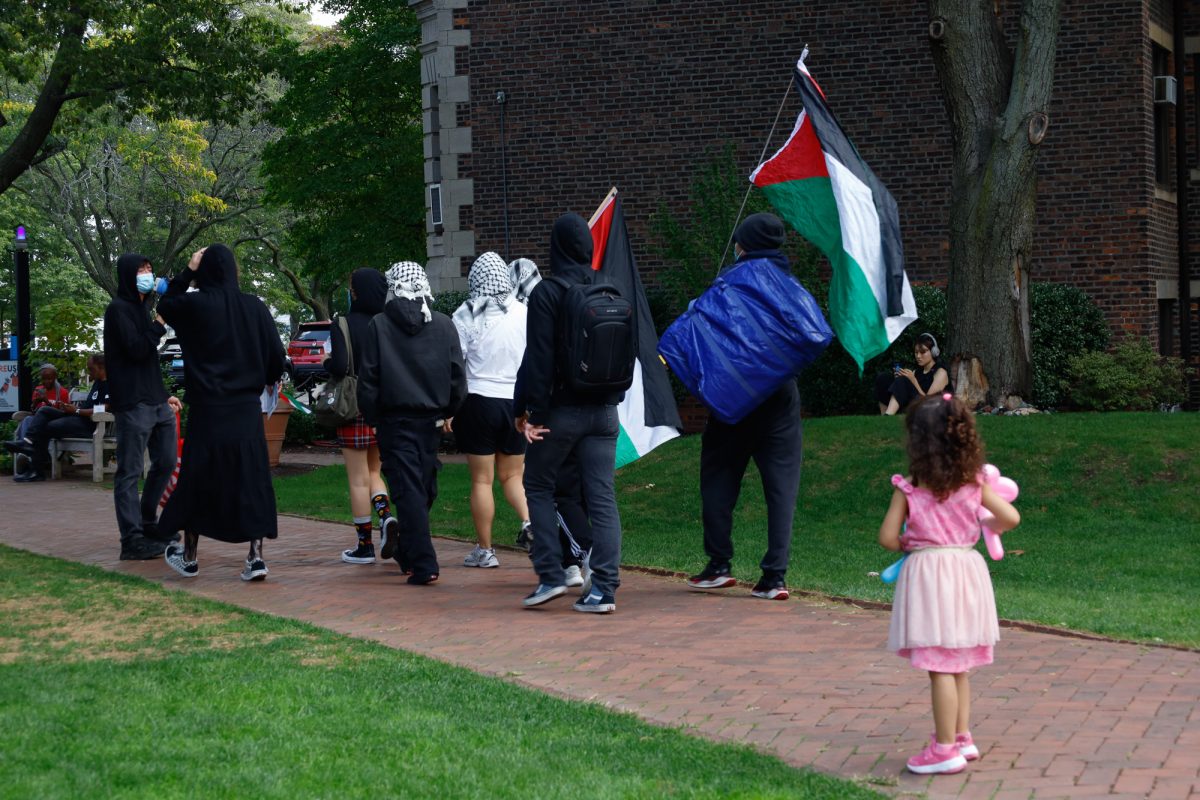
Activists planned to rally in support of changing the name of Faneuil Hall this weekend, but no protest occurred at the marketplace despite burgeoning support for the cause.
Peter Faneuil, who the building is named after, was a prominent colonial slave trader. The New Democracy Coalition of Massachusetts, a non-profit and non-partisan organization based in Boston, planned to rally with the social advocacy organization Occupy Boston to get City officials to change the name, according to a Sept. 14 press release.
“We invite Boston Mayoral Candidates to take a stand not only acknowledging the horror of Faneuil Hall but to allow the people of Boston the privilege of choosing to no longer contribute to the legacy of slavery,” the Occupy Boston press release read.
Occupy Boston has not yet released any additional information regarding why the event did not occur and when future events will take place. The organization could not be reached for comment.
NDC founder Kevin Peterson said the coalition has requested the Boston City Council hold a meeting to discuss changing the name for three years.
“Voters can weigh in a very public fashion around how the name is associated with the ugly tradition of slavery,” Peterson said.
According to a Sept. 3 poll by MassInc Polling Group, more than half of those polled were in favor of changing the name of Faneuil Hall. Of those polled 87% said they supported bringing in more Black-owned business into Faneuil Hall and 72% supported erecting an abolitionist statue of Frederick Douglass.
Jefferson Gomez, who has lived in Boston for 10 years, said he does not support the current name of the building because Faneuil was a slave owner.
“Why do you want to honor someone who [was] pro-slavery?” Gomez said. “That is history that has to be corrected for the better, to make people understand the way things really happen.”
Faneuil Hall employee Diane Rossi said it is important to acknowledge the history of Peter Faneuil’s connection with slavery, while keeping the name intact.
“Don’t dismiss what he did,” Rossi said, “but maybe include information and … not hide that fact. It doesn’t change anything to change the name of the building.”
Performing artist at Faneuil Hall Mark Aleo said he is “open” to changing the building’s name in honor of Crispus Attucks, the first person killed in the Boston Massacre.
“It’s worth a discussion and I don’t think I’m not opposed to it,” he said.
He added, however, that the case for changing buildings named after founding fathers who owned slaves — like United States Presidents George Washington and Thomas Jefferson — is different from buildings named after slave traders.
Rossi said changing names of historical sites might be just an easy action politicians make to please the general public.
“I think we have a habit of changing things too much to suit whoever is maybe in office or whoever’s disagreeing or the temperament of people at the time, instead of acknowledging the fact that he was a slave owner,” she said.
Peterson said the NDC will continue to work to protest the name of Faneuil Hall, calling for a boycott of businesses and for mayoral candidates to commit to rename the building.
“Our elected officials have refused, maybe out of fear, maybe out of a lack of understanding around how they go about having these conversations particularly around Faneuil Hall,” he said, “but they’ve failed to produce positive action.”
Peterson said he believes changing the name of Faneuil Hall, which attracts 18 million visitors annually, will have larger implications for the city of Boston.
“Changing the name of Faneuil Hall is explicitly connected to engaging the entire city around discussions related to race and racial reconciliation,” Peterson said.
[Update 10/6: An organizer with Occupy Boston said a few individuals did camp out overnight, although it wouldn’t be accurate to call it a “rally” as advertised.]














































































































